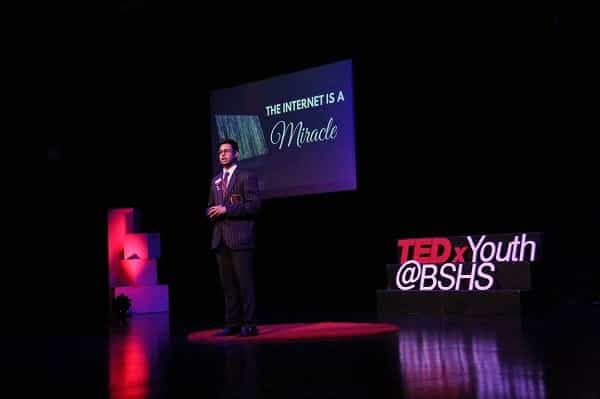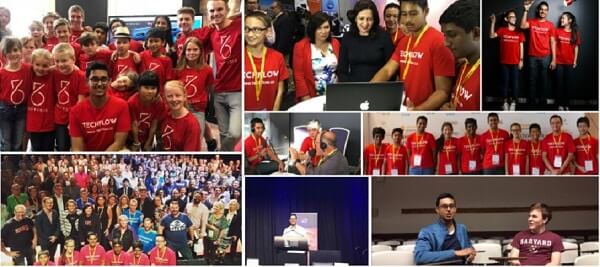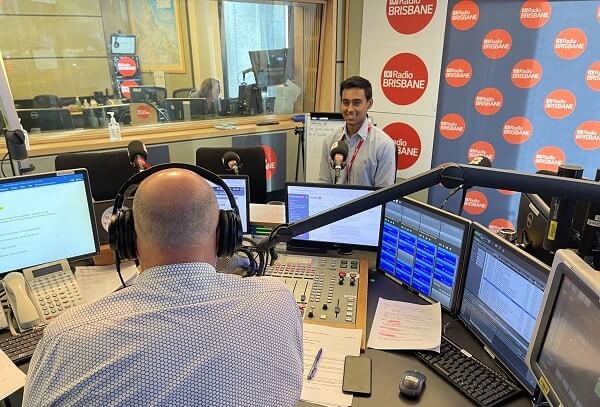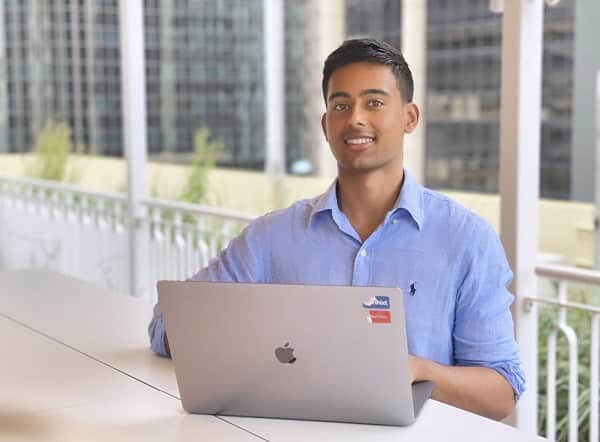You would be hard-pressed to find a more impressive 20-year-old than Yuva AI Founder and CEO, Yash Dutt.
Yuva AI creates synthetic data that can be fed into artificial intelligence (AI) applications, reducing the costly and time-consuming exercise of obtaining real-world data to properly train AI tools, and potentially accelerating AI use cases heavily reliant on these data inputs, such as autonomous vehicles and automated cancer detection.
Taking on a highly technical industry at such a young age recently led to Yash being recognised as one of the country’s most influential Asian-Australians under the age of 40.
Indian Link recently caught up with Yash about running start-ups, youth, and personal and professional growth.
Tell me what it means to you to be recognised in the 40 Under 40 list of influence.
It’s great validation to get a nod of approval from a panel of successful people in respectable positions. It’s also a title that allows me to get into different rooms that I wasn’t in before.
But the big thing for me is being able to form those connections with other people on that list. Those people become part of your core circle, especially for me, being younger and having to grow up a little earlier.
READ ALSO: Amit Singh on the 40 Under 40 Asian Australians list for 2021

You started TechFlow, a platform for youth conversation and collaboration on technology, at the age of just 14. How did that come about?
TechFlow was about conversation. My friends and I were concerned about how technology was going to affect our future careers, but no one we knew was really talking about it.
My friend and I, who both loved and understood technology and had strong STEM backgrounds, thought we could use our skills to address that lack of conversation by creating TechFlow.
We produced content about new technologies and how they could affect young people, and we also covered technology events around Australia, sharing information for Generation Z. That conversation eventually grew to involve tens of thousands of teenagers worldwide.
What’s the biggest challenge you’ve faced in building Yuva to what it is today?
At the start it was very difficult, because I’d be pitching to people with kids my age. There were times when people would say to me “I thought you were the intern”, or “I’ve got a team of people with PhDs, why should I ask you to help us?”
I’d be on LinkedIn messaging hundreds and hundreds of people with specialised messages, and maybe only 10% would even reply.
But you have to put in all that work from the start: identify what is required and the different avenues you can take to get there, whether it’s upskilling yourself, building a team, or something else. It’s a process of constant iteration.
You just need to get that first win, get that first person to say yes. And once I got that win, having put in all the hard work up front, it was a lot more satisfying.

READ ALSO: Charishma Kaliyanda on the 40 Under 40 Asian Australians list for 2021
You have had a non-traditional career path for someone of an Asian background, having gone straight into the start-up sector after high school. Talk to me about that leap.
It’s ultimately a balance between self-belief and being able to show results.
Starting early with TechFlow gave me self-belief, it allowed me to see a whole different world of people who were able to build a successful business in the sector. I thought, “If they can do it, why can’t I?”
But I also had to prove it with results. I had to make whatever vision I had for Yuva AI a reality. And I was lucky to have numerous mentors, including family support, that helped me get the results, make the right business decisions and push me in the right direction.
How do you manage being responsible not only for yourself but three employees at the age of 20?
As scary as it is, it gives you additional motivation to get results. We need to make sure costs don’t blow out of proportion, that everyone is accountable for their roles, and that we achieve the milestones we need to hit.
If you treat people the way you would like to be treated, and bring them along for the journey, that open and honest culture gets you through the tougher moments.

What’s next for Yuva AI and for you?
Growth. We’re one of the premier players in the world now, so we have some good customers on board and now the focus is on growth.
I’m in initial talks with my mentors trying to figure out our next milestones, including whether we bring on external capital to achieve them.
Any words of wisdom for young Asian Australian entrepreneurs?
I’m in a highly technical field but time and again what has driven my success so far is understanding people and the idea of empathy.
As an Asian Australian in STEM, you’ll likely have a strong hard skill, whether its engineering, science, maths or something else. But it all comes back to solving problems for people: if you understand a person better, you will design a solution that’s better for their problem.
QUICK BYTES
Who inspires you? Kobe Bryant, Gary Vaynerchuck.
Any book or podcast suggestions for our readers? Book: Deep Work by Cal Newport. Podcast: Masters of Scale by Reid Hoffman
First place you’re going when the world opens up again? New York, and eventually London.
READ ALSO: Hament Dhanji SC on the NSW Supreme Court
Link up with us!
Indian Link News website: Save our website as a bookmark
Indian Link E-Newsletter: Subscribe to our weekly e-newsletter
Indian Link Newspaper: Click here to read our e-paper
Indian Link app: Download our app from Apple’s App Store or Google Play and subscribe to the alerts
Facebook: facebook.com/IndianLinkAustralia
Twitter: @indian_link
Instagram: @indianlink
LinkedIn: linkedin.com/IndianLinkMediaGroup




